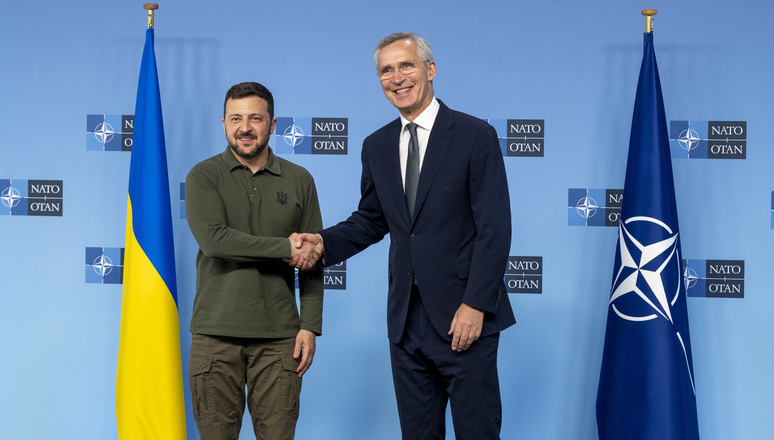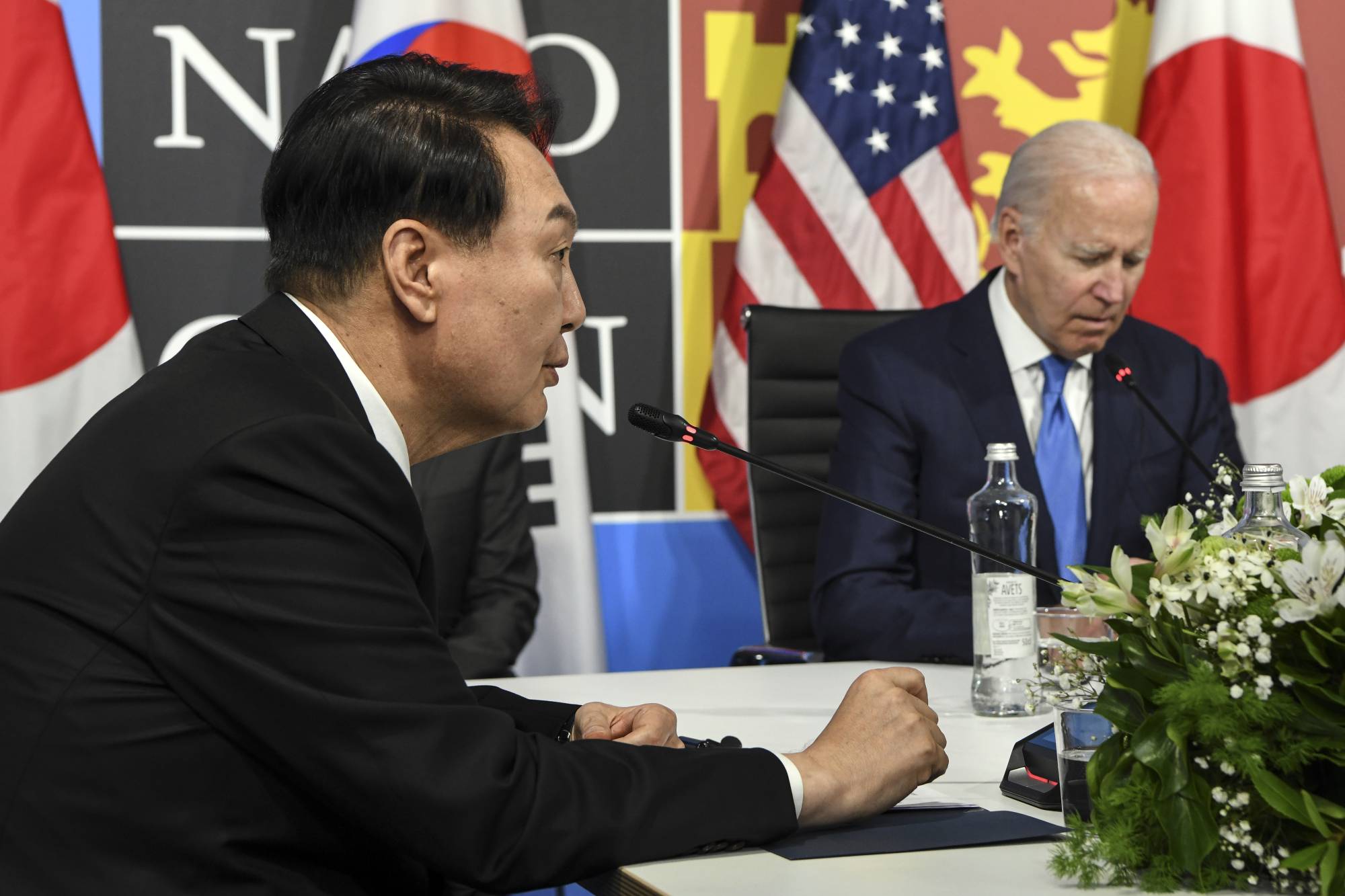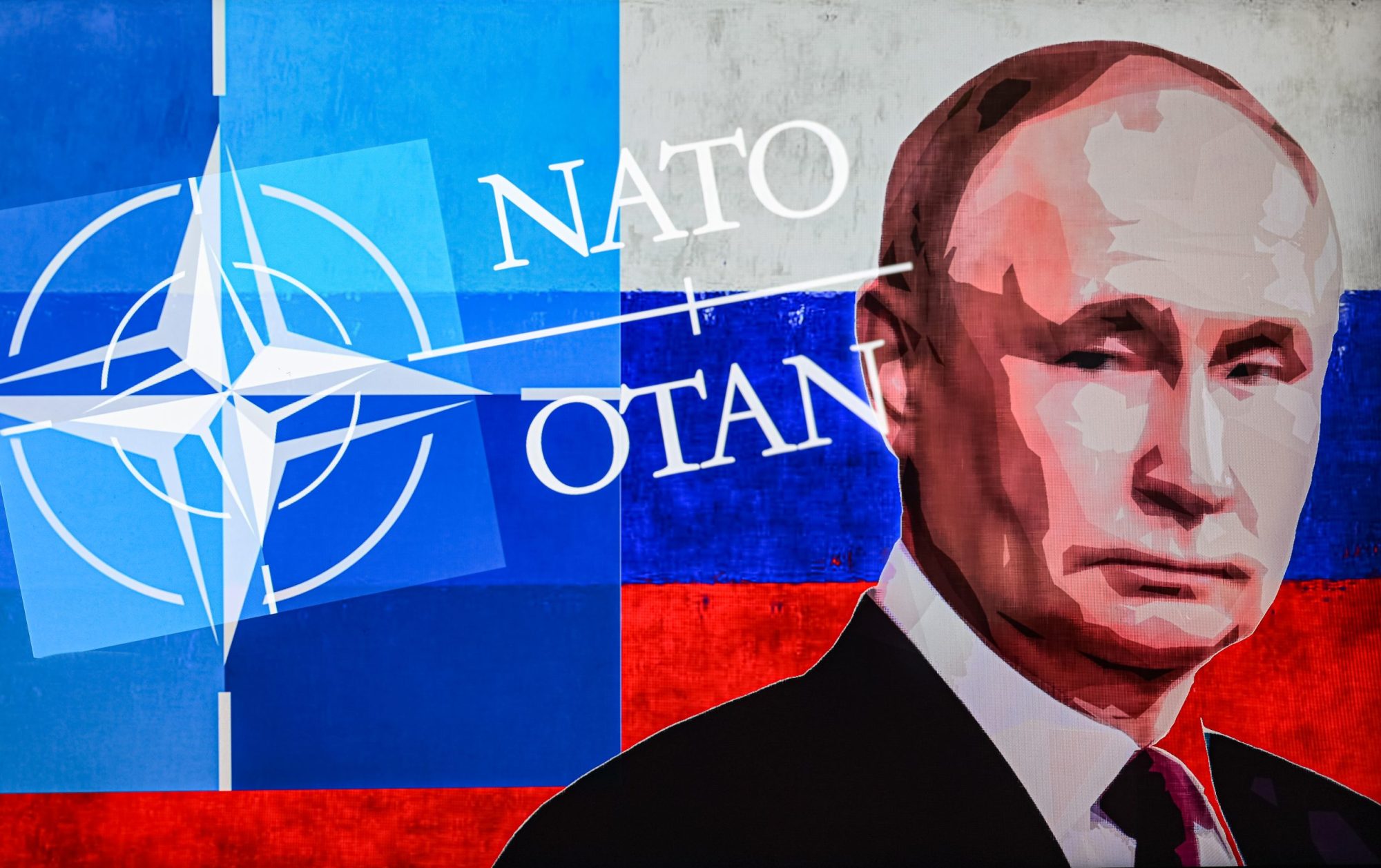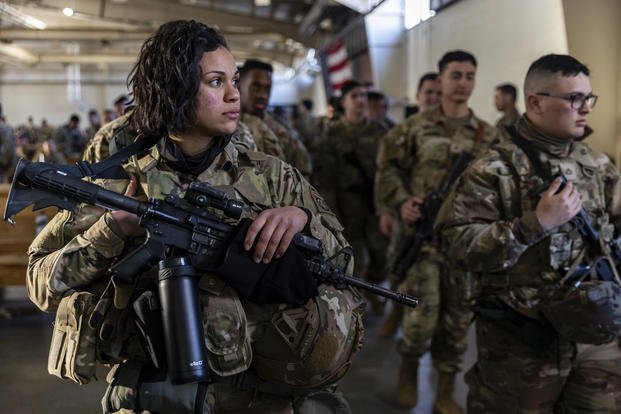No End To Ukraine-Russia War? NATO Promises $43BN Aid, ‘Irreversible Path’ To Membership To Ukraine; How Will Russia Respond Even As Poland Must Prepare Army For All-Out War, Says Poland’s Chief Of Staff

Ukraine’s long-standing request for military Aid has received the green signal as NATO leaders have pledged to give Ukraine at least $43 billion over the next year to strengthen its defence against Russia. They also declared that Ukraine is on an “irreversible path” to joining NATO.
The commitment was made at the current NATO summit in Washington, DC. Simultaneously, the alliance’s members also announced various individual and joint measures to enhance the security of Ukraine and Europe.
Notably, the US, Netherlands, and Denmark will provide Ukraine with F-16 fighter jets by this summer. Additionally, the US is said to deploy longer-range missiles in Germany by 2026 to counter Russia’s threat to Europe.
The missile deployment marks the most powerful US weapons presence in Europe since the Cold War, which was previously restricted by the 1987 Intermediate-Range Nuclear Forces Treaty that ended in 2019.
Meanwhile, Ukrainian President Volodymyr Zelenskyy expressed gratitude for NATO’s efforts to strengthen Ukraine’s air force, stating that the new fighter jets bring a “just and lasting peace” closer and show that terrorism must fail.
It was reported that NATO had met most of Zelenskyy’s requests, including providing dozens of air defence systems.
The US will supply Ukraine with four Patriot missile systems, and other NATO members will help maintain these systems; however, Ukraine’s membership in NATO is still pending.
 Ukraine’s Membership To NATO
Ukraine’s Membership To NATO
While Ukraine has received the much-anticipated and sought military Aid, it still has a few steps to clear before it is given NATO membership.
According to NATO’s communique, “Ukraine’s future is in NATO,” it promised continued support for Ukraine’s integration into the Euro-Atlantic community, including eventual NATO membership.
However, it stated that the invitation to join would only be extended when all Allies agreed and certain conditions were met.
NATO Secretary-General Jens Stoltenberg emphasized that Ukraine will join NATO after the war ends to ensure Russia does not attack Kyiv again. He went on to clarify that NATO’s goal is to end the war as soon as possible, not to prolong it.
The US and some other countries have opposed Ukraine joining NATO during its conflict with Russia to prevent escalating tensions that could lead to a larger war.
At the same time, they also emphasized that Ukraine needs to tackle corruption and implement other major reforms.
 NATO And Chinese Concern
NATO And Chinese Concern
NATO’s statement has also taken a tougher stance on China, calling it a “decisive enabler” of Russia’s war in Ukraine and highlighting that Beijing continues to pose challenges to Euro-Atlantic security.
NATO Secretary-General Jens Stoltenberg said it was the first time all 32 NATO members collectively labelled China in this way, thus stressing the significance of this message.
Although NATO doesn’t impose sanctions, Stoltenberg noted that individual countries might take action based on the summit’s clear stance.
Additional Concerns
Another concern that has surfaced concerns Donald Trump’s potential impact on NATO if he wins the upcoming election.
The same surfaced due to President Joe Biden’s capabilities following a debate gaffe; additionally, Stoltenberg defended NATO, pointing out that the US criticism has been about allies not investing enough in NATO, a situation that has improved recently.
While Trump has threatened not to defend NATO members if their military spending doesn’t meet the alliance’s target of at least 2% of their GDP, the number of allies meeting this target has increased from six to 23 since 2021.
However, Trump clarified on Fox News Radio that he doesn’t want the US to leave NATO but wants other countries to fulfil their financial commitments.
Meanwhile, President Biden emphasized NATO’s importance while hosting the North Atlantic Council in Washington, DC. He noted that since he took office, military spending has increased and the number of battle groups on NATO’s eastern flank has doubled.
“We can and will defend every inch of NATO territory, and we will do it together,” Biden said.
The summit, which included leaders from the 32 NATO countries and Pacific partners like Australia, Japan, New Zealand, South Korea, and Ukraine, might be one of Biden’s last international appearances before the US election. With the election approaching, Biden’s political challenges were a significant backdrop to the gathering.
Former US Assistant Secretary of State for Public Affairs PJ Crowley pointed out that NATO leaders are concerned about Biden’s ability to lead as he has played a crucial role in making NATO central to American security policy. Crowley also noted that while the promises made at the summit are crucial for Ukraine, their impact might be limited if Trump, who is skeptical of alliances like NATO, wins the election.
Crowley emphasized the importance of Aid to Ukraine, stating that Ukraine must be supported and its sovereignty protected. He suggested that Trump might push for negotiations to end the conflict if he becomes president.
 Russia’s Response
Russia’s Response
Russian media have downplayed the unity shown at the NATO summit, focusing on President Biden’s suitability for office.
The state-run tabloid Moskovsky Komsomolets described Biden as “close to senility” and out of touch with reality, framing his pledge to defend Ukraine as an attempt to salvage his presidential campaign.
Coverage in Russia stressed the obstacles Ukraine faces in joining NATO, with Polish President Andrzej Duda’s comments that accession can’t happen until the conflict ends being particularly noted.
The TV show 60 Minutes described these remarks as a “cold shower” for Zelenskyy.
Despite the dismissive tone, the extensive coverage suggests underlying concern in Russia. The Kremlin is aware that Zelenskyy will likely secure more military Aid from the summit, which could pose significant challenges for Russia.
An anonymous NATO official quoted by Reuters mentioned that Russia is suffering heavy losses and lacks the resources for a major offensive, implying that additional weapons for Ukraine could worsen these problems.
However, Kremlin spokesman Dmitry Peskov said Moscow will “closely monitor” the summit’s outcomes.
 Poland Must Prepare For War
Poland Must Prepare For War
Poland must prepare its soldiers for a “full-scale conflict,” according to its armed forces chief of staff, General Wieslaw Kukula who emphasized the need to balance army training with border security.
The number of troops on Poland’s eastern border will increase from 6,000 to 8,000 by August. General Kukula stated, “Today, we need to prepare our forces for full-scale conflict, not an asymmetric-type conflict.”
In May, Poland announced “East Shield,” a $2.5 billion program to strengthen defences along its border with Belarus and Russia. This comes as Belarus and China conducted military drills near the Polish border.
The border with Belarus has been a flashpoint since 2021 when migrants began arriving there. Belarus had opened travel agencies in the Middle East, offering a new unofficial route into Europe, which the European Union claimed was an attempt to create a crisis.
As of the end of last year, the Polish armed forces had about 190,000 personnel. Poland plans to increase this number to 300,000 troops within a few years.



